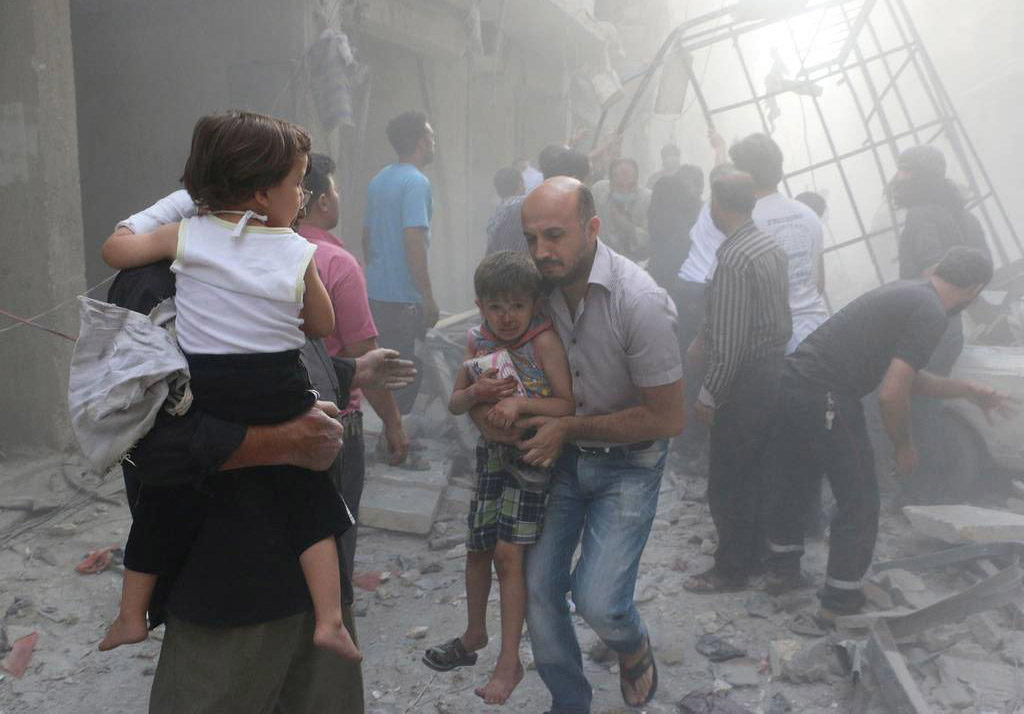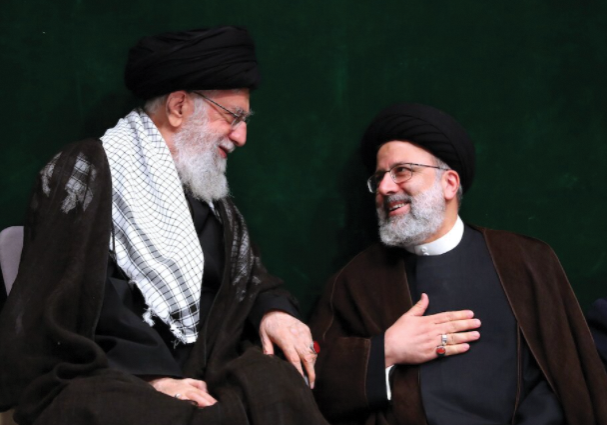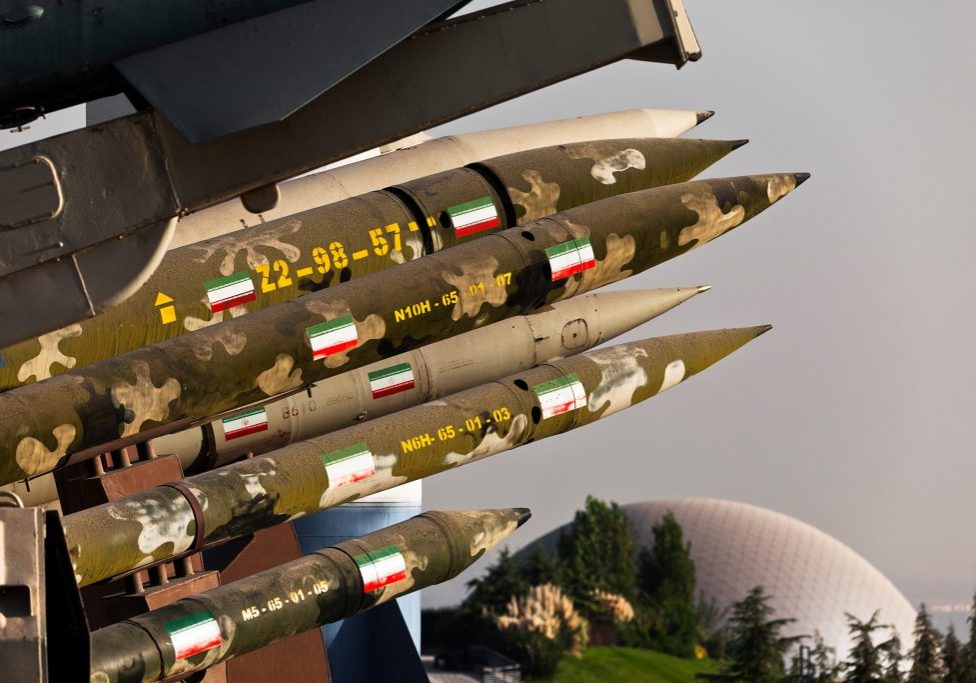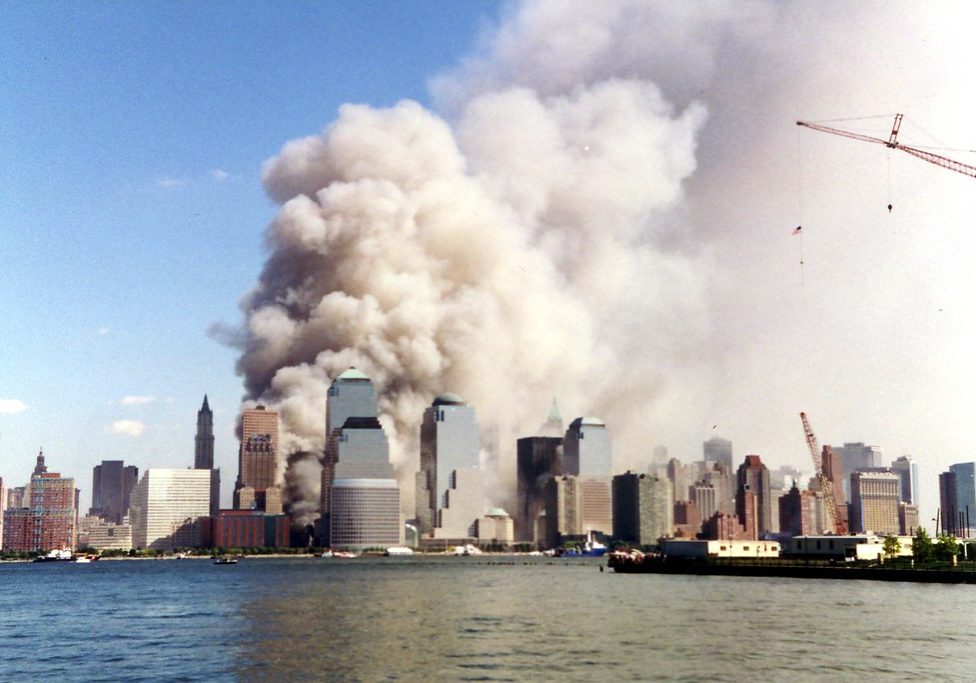Australia/Israel Review
Scribblings: Syria’s chlorine bombs and the Iran deal
Apr 29, 2015 | Tzvi Fleischer

Tzvi Fleischer
On April 16, the UN Security Council (UNSC) held a closed door session to view video footage and hear testimony on the aftermath of an alleged chlorine gas attack on the town of Samin in Northern Syria on March 16. US Representative Amb. Samantha Power said the meeting was “very emotional” in the wake of footage of the deaths of three small children killed in the attack. This attack appears to be yet more irrefutable evidence that Syria’s Assad regime is violating undertakings it made in a 2013 deal to give up its chemical weapons and abide by the Chemical Weapons Convention – a deal that averted likely US bombing after the Syrian regime repeatedly violated a “red-line” set by US President Obama against chemical weapons use.
However, this is hardly the first time barrel bombs full of chlorine have been dropped on civilian areas of Syria. The Organisation for the Prohibition of Chemical Weapons confirmed that such bombs were likely used on three villages in April and May of last year, and Syrian human rights groups claim to have documented many other attacks – one report from the Syrian Network for Human Rights counted “no less than 50 attacks using gases that are likely poisonous” between Sept. 27, 2013 through Oct. 22, 2014.
These attacks violate not only the 2013 deal and the Chemical Weapons Convention (CWC), but also UNSC Resolution 2118 of Sept. 27, 2013, which decided that the UNSC should “in the event of … any use of chemical weapons by anyone in the Syrian Arab Republic… impose measures under Chapter VII of the United Nations Charter.” That last phrase clearly implies use of force, sanctions or other coercive measures.
So what has the UN done about the chlorine barrel bombs? Well, a year after they were first reported, the UNSC did condemn them – in Resolution 2209 on March 6 of this year. Moreover, 2209 threatened repercussions under Chapter VII if the attacks continue.
The problem is that the resolution makes no judgement about who is responsible for the chlorine gas attacks, – and the UNSC is never likely to pass any resolution holding the regime responsible for them. This is because Russia – a patron of the Assad regime – would veto any attempt to pass such a resolution. Moscow insists that the evidence is not decisive that the Assad regime is responsible for the chlorine attacks – despite the fact that it is clear that these chlorine bombs were dropped by helicopter, and the Assad regime is the only faction in Syria which has helicopters. China is also basically in Russia’s corner on this.
Meanwhile some commentators are insisting the Syrian violation is not clear cut. They point out that chlorine is not a banned substance under the CWC – which it is not, but its use as a weapon absolutely is banned.
What’s the importance of this for the Iran nuclear deal? Very simply – the Assad regime today is essentially an adjunct of Iran. As Jonathan Spyer notes in this edition, the regime’s finances and war effort are increasingly dominated by the Iranians. They will thus be watching this response very closely (and indeed it seems quite likely that Iranian commanders and advisors could have been involved in the Assad regime’s decision to use chlorine gas.)
And what will the Iranians conclude from Syria’s violation of the deal it made in 2013? That they can almost certainly cheat on any nuclear deal and get away with it – as long as they are not too ostentatious about it.
If the Syrian and other recent cases are any precedent, any detection of cheating will be met with considerable, lengthy, debate about whether the evidence is convincing. And there will be assertions that we don’t know if the cheating was authorised by the Government, or perhaps the cheating is not really cheating under Iran’s reading of the agreement, or maybe Iran was reacting to alleged violations on the other side. Then there will be claims that even if Iran is cheating, it’s not on a level that would warrant blowing up the whole deal. Meanwhile, China and Russia can be guaranteed to oppose any findings that might lead to serious consequences for Iran – and they will be joined by loud, well-moneyed business lobbies, especially in Western Europe, determined to keep intact the lucrative business arrangements they will have forged with Teheran in the wake of a nuclear agreement.
Thus, the worst Teheran likely has to fear if caught cheating – unless it is really brazen and blatant – is a statement of condemnation and perhaps some largely symbolic sanctions. And after that, Iran’s cheating will become the new normal – leading to a new round of cheating. In this way, Teheran can vastly cut the supposed one-year “break-out” time to a nuclear weapon well before the deal expires.
So anyone who insists that the supposedly tight inspections to be agreed under the proposed deal will guarantee Iran cannot cheat on it need to address a further reason to think the opposite. Not only do they need to address why they think this in the face of the repeated successful Iranian cheating in the past – often for periods of years – and North Korea’s success in cheating its way to a bomb across a series of supposedly airtight nuclear agreements. They also need to address why they think Iran won’t be able to successfully cheat when Iran’s client Syria has been successfully cheating on the arms control agreement it signed in 2013 to avoid military attack without suffering any consequences, and also demonstrating to the Iranians how it’s done.
Tags: International Security






